
A full coverage dental crown is a way of restoring a badly damaged tooth. It is designed to cover and protect the entire structure of the tooth.
Dental crowns are made to look and feel like natural teeth. They are durable, strong and will last you for many years
Why Would I Need A Dental Crown?
Reasons why we would recommend a dental crown to our patients:
- Sometimes a tooth can be damaged to the extent that its strength is compromised, such as when there is a large filling. This can cause stresses on the remaining tooth structure as the filling expands and contracts when you bite.
- We may recommend a crown when a tooth is fractured or cracked, and you need to hold it together and prevent further tooth loss.
- To cover a tooth that has had root canal treatment; a crown in such cases is essential for the success of root canal therapy, as the tooth can become brittle, discoloured and prone to fracture.
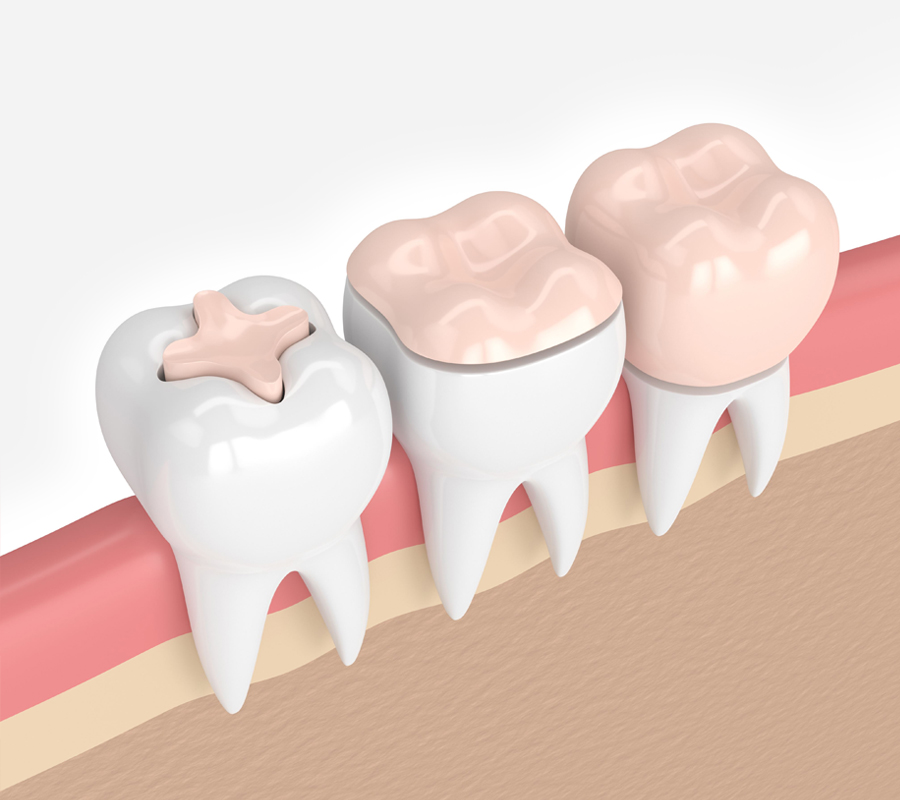
Benefits of Dental Crowns
- Alleviate uncomfortable symptoms of tooth damage such as sensitivity and inflammation.
- Ensure your upper and lower teeth will meet properly to maintain a balanced bite.
- Provides long-lasting protection to damaged teeth.
- Helps restore your natural smile.
What Does Getting a Crown Involve?
You need two appointments for a dental crown.
- At your first appointment, we re-shape your tooth. We painlessly remove any decay or broken surface. Then we make a mould of your tooth and send to the lab for your custom- made crown to be created. Meanwhile, we will give you a temporary crown to protect your tooth until your next visit.
- One or two weeks later we’ll schedule you back for your next appointment. First, we remove your temporary crown. Then we fit your permanent crown and make sure you are comfortable with the bite and the way it looks. Finally, we bond the crown to your tooth so that you can enjoy the protection and appearance of your crown for many years.
What are the Types of Dental Crowns?
1. Gold Crowns
Gold crowns are in fact a combination of copper and other metals such as Nickel or Chromium. Depending on each patient’s needs, we may suggest a gold crown as a good option for back teeth.
Main ADVANTAGES of gold crowns:
- Strong and highly resistant.
- Minimal amount of tooth preparation needed.
- Ideal for back teeth especially the second molars.
Main DISADVANTAGES of gold crowns:
- Poor aesthetics; don’t look like a natural tooth.
- Can cause allergic reaction or swelling in some patients.
2. All Porcelain Crowns
These crowns are entirely made of porcelain material
Some ADVANTAGES are:
- Porcelain or all ceramic crowns provide the best and most natural look, matching the surrounding teeth in shape, size and colour.
- They are biocompatible, that means no metal used, so they are non- toxic.
- Best option for front teeth restorations.
Main DISADVANTAGES are:
- They are not as strong as metal crowns, can be more easily damaged.
- May not be suitable for patients with bruxism
3. Porcelain Fused-to- Metal Crowns (PFM)
Porcelain fused -to- metal crowns are another widely used type of dental crowns. They provide both strength (due to their metal structure) and aesthetics (due to the porcelain coat that covers the cap).
The main ADVANTAGES of PFM crowns are:
- They’ve been around for over 50 years, so we know they work well.
- They are less expensive than all porcelain crowns.
However, the DISADVANTAGES of PFMs include:
- The metal in these crowns may show at the gum line, which does not give the 100% aesthetic look that porcelain crowns provide.
- For people who clench their teeth, this type of crown may wear down more easily against the opposing teeth.
4. Zirconia Crowns
Zirconium is a relatively new material that combines the strength of metal with the aesthetics of porcelain crowns.
Highly translucent zirconia and layered zirconia are a very popular choice of crowns nowadays.
Main ADVANTAGES of zirconia crowns are:
- They provide great aesthetics.
- They are strong and long-lasting.
- Less likely to wear down due to their strength.
- They are biocompatible: as metal free crowns, they are not likely to cause allergic reactions.
The main DISADVANTAGES of Zirconia crowns include:
- Their strength can make the opposing teeth to wear down easily.
- Solid Zirconia can be difficult to adjust.
5. E-Max: Lithium Disilicate Crowns
E-max is a type of all- ceramic crown made of lithium disilicate. This material is truly a revolution in the dental industry.
Main ADVANTAGES of E-max crowns are:
- Excellent aesthetics. They look great in your mouth.
- They can be durable and very strong.
- They provide a great choice for both front and back teeth.
However, some dental professionals have reported failures using E-max for back teeth, especially when doing multiple units.
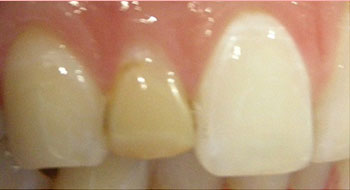
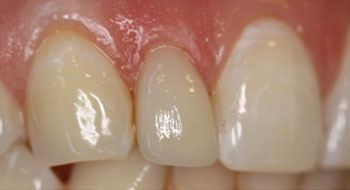
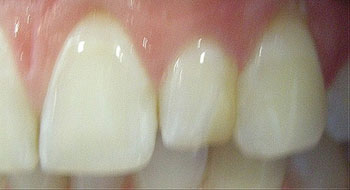
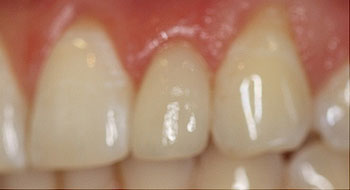

Enquiries will be responded via Phone Only
Our Opening Hours Are: 8:30am-5:30pm, Monday To Friday and by appointment only On Saturday.
"*" indicates required fields
white cross hornsby dental / CBHS




